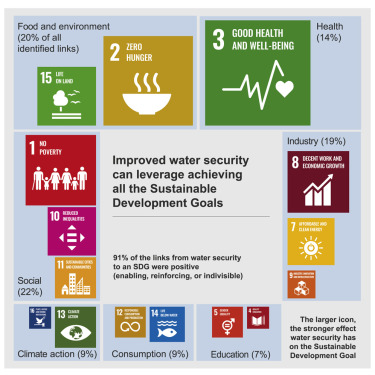Increased levels of CO2 and various greenhouse gases cause global warming and, in combination with pollutants from fossil fuel combustion and vehicular and industrial emissions, have been driving increases in noncommunicable diseases across the globe, resulting a higher mortality and morbidity. Respiratory diseases and associated allergenic manifestations have increased worldwide, with rates higher in developing countries. Pollen allergy serves as a model for studying the relationship between air pollution and respiratory disorders.
Background: Many causes of vision impairment can be prevented or treated. With an ageing global population, the demands for eye health services are increasing. We estimated the prevalence and relative contribution of avoidable causes of blindness and vision impairment globally from 1990 to 2020. We aimed to compare the results with the World Health Assembly Global Action Plan (WHA GAP) target of a 25% global reduction from 2010 to 2019 in avoidable vision impairment, defined as cataract and undercorrected refractive error.
Women and children bear substantial morbidity and mortality as a result of armed conflicts. This Series paper focuses on the direct (due to violence) and indirect health effects of armed conflict on women and children (including adolescents) worldwide. We estimate that nearly 36 million children and 16 million women were displaced in 2017, on the basis of international databases of refugees and internally displaced populations.
Background: The incidence of metastatic spine disease (MSD) is increasing among cancer patients. Given the poor outcomes and high rates of morbidity associated with MSD, it is important to determine demographic factors that could impact interventions and outcomes for this patient population. The objectives of this study were to compare in-hospital mortality and complication rates, clinical presentation, and interventions between female and male patients diagnosed with MSD.
Our nationwide network of BME women faculty collectively argue that racial funding disparity by the National Institutes of Health (NIH) remains the most insidious barrier to success of Black faculty in our profession. We thus refocus attention on this critical barrier and suggest solutions on how it can be dismantled.
COVID-19, Obesity, and Structural Racism.
A framework for understanding water's many functions for supporting, regulating, and stabilizing hydro-climatic, hydro-ecological, and hydro-social systems.
This article examines how improved water security affects the success of other SDGs, when all the goals are examined simultaneously.
This Lancet Global Health Commission advances addresses SDG 3 directly, and SDGs 1, 2, 4, 5, 8 and 10 indirectly, by comprehensively demonstrating how improving eye health by treating and preventing vision impairment and vision loss can not only advance SDG 3—improving health and wellbeing for all—but also contribute to poverty reduction, zero hunger, quality education, gender equality, and decent work and economic growth. The findings of this report frame eye health as a development issue and highlight that, with a growing ageing population globally, urgent and concerted action is needed to meet unmet eye health needs globally, including incorporating equitable eye care into countries’ universal health coverage plans.
Background: In 2016, of the estimated 257 million people living with chronic hepatitis B virus (HBV) infection worldwide, only a small proportion was diagnosed and treated. The insufficiency of information on the proportion of people infected with HBV who are eligible for treatment limits the interpretation of global treatment coverage. We aimed to estimate the proportion of people with chronic HBV infection who were eligible for antiviral treatment worldwide, based on the WHO 2015 guidelines.

